Interview with Stated Clerk Gradye Parsons
As part of the finale to our discussion on race, white privilege, and the church, Rev. Molly Casteel – Assistant Stated Clerk and Manager for Representation, Inclusiveness, and Ruling Elder Training – sat down with Stated Clerk of the Presbyterian Church (U.S.A.) Gradye Parsons to have a conversation about about what he has seen and looks forward to seeing regarding racial justice and the PC(USA).

Molly: Gradye, thanks for agreeing to this interview; it’s fun to talk with you on these topics and to open that up to the whole church.
Gradye: Thank you, Molly.
Molly: So we’ve been asked to have a conversation about race and white privilege in the church. This has been a pretty eventful year in the life of the PC(USA) and the US in regard to race and white privilege. I know there have been a number of events in the US that you’ve helped the church respond to publicly.
Gradye: Yes, I think part of what it means to be Presbyterian has to do with leadership development. It comes out of the way we govern ourselves, out of our understanding we empower people. It’s part of the core of who we are.
As a result, if you look at the leadership of many communities, you’ll find a Presbyterian in leadership one way or another. Part of the reason we got to be in leadership has to do with our own whiteness and the power attributed to that, whether we sought that or not. To the extent that we have been in leadership in our communities, we have led those communities to develop in a certain way, and we have to take responsibility for that.
To the extent that we can, we need to be involved in the solution for two reasons. First, for the constituencies of color in our church, it’s important that they see that the church as a whole has some understanding of their struggle. And second, for those in our church who are part of the leadership of this country and their communities, we have to look at ourselves and ask, “What can we do? What could we have done better? What do we need to do better now?”
___________________________________________
Most Presbyterians, I’d say almost all Presbyterians, don’t see themselves as overtly racist. We have to find ways to help people see that they may not be explicitly racist, but they are part of a culture that perpetuates racism.
___________________________________________
Molly: You mentioned that in the last 6 months, there have been more intentional efforts by African American organizations to want Presbyterians at the table, to be part of the conversation. Tell me about a couple of those invitations.
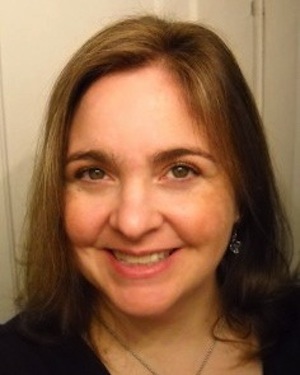
Gradye: Well, the first invite was the Conference on Black Churches, and they reached out to traditional mainliners, Presbyterians, Lutherans, Methodists, some others, to come and have intentional dialogues. So they had an event in December in Charleston. It was the 6-month anniversary of Mother Emanuel.
I’ve also been asked to be part of a panel at the National Action Network in New York City. Their convention is more about political rhetoric and the church, so there’s some sense that we are good conversation partners. And hopefully, as in all conversations, we can benefit as much from that experience as we can give.
Molly: I know after Ferguson, you also played a role in getting the National Council of Churches (NCC), to relocate their meeting near Ferguson so that conversation could continue close to that sacred ground. And recently Churches Uniting In Christ (CUIC) had their meeting…
Gradye: CUIC also had their meeting in St. Louis. Racial conversation is a big part of the CUIC context; it’s a focus of that particular council. The 223rd General Assembly of the PC(USA) will also be held in St. Louis. So in a way, St. Louis is becoming a place for us to have these kinds of conversations. [See the video on racial justice recently created by the Office of the General Assembly.]
Molly: Going back to Mother Emanuel, one of our sister denominations has really taken that event and made a pivot point internally about it. Can you tell us about that?
___________________________________________
If you want people of color at your church, you have to care about issues related to people of color.
___________________________________________
Gradye: Yes, I was just with the Lutheran bishop last week and want to give her a shout-out because they have really taken it seriously that a child of their church was the one who terrorized Mother Emanuel. They are doing some deep internal reflection. They are holding a couple national webinars about it, having black and white congregations watch Selma together, and getting the teenagers together to watch another film about race. They’re really trying to not hide from it, not be ashamed, but to use this as a place to move forward and have conversation.
For our part as Presbyterians, we’re having the AME ecumenical officer as an ecumenical speaker at GA.
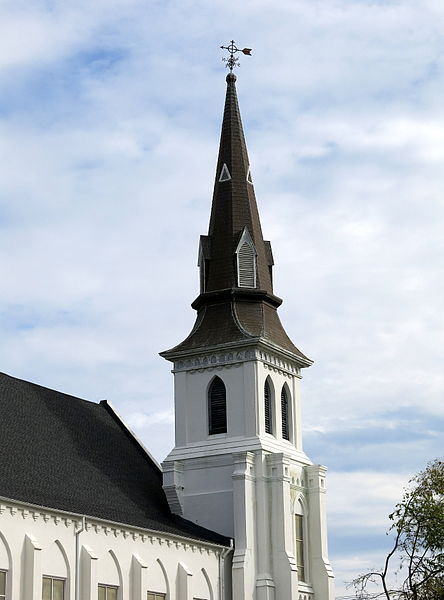
Photo Credit: Spencer Means CC 2.0
I think Mother Emanuel woke up a lot of people.
Molly: I think it’s hard not to. As church people, Bible study and prayer groups are a sacred space. And when a young white person picks a historically black church, the fact that it’s a racially motivated crime is impossible to ignore. The conditions of what happened there are also deeply disturbing, to spend an hour with your victims before you murder them…
Gradye: And the space where it happened, the fellowship hall, is an intimate space. We’re not talking about high ceilings; we’re talking about a room where you’re breathing each other’s air. So to go from that situation to rampant murders is really impossible to fathom.
Molly: Earlier, you talked about how, as a predominately white church, we have things we must remedy and things we must repent of, which gets us close to the word confession. At this upcoming General Assembly, we’ll be commemorating one confessional statement and also considering the final adoption of another, both of which touch on race and racial injustice. I wonder if you might want to make some connections there.
Gradye: Sure. When we meet in Portland, we will celebrate almost 50 years since the Church began the process of adopting the Confession of 1967 (C67), which was in part about race and reconciliation, racial unrest in cities, all the things that were going on in the context of the 1950s and 60s. And there’s more to C67 than the text itself; there’s this whole understanding of confessions addressing our present context, what’s going on in our own country.
___________________________________________
C67 and Belhar are two important statements, coming at a time when in the past 2 years there has been so much unrest and so much murder. I think it’s important for this white privileged church to read these confessions and hopefully, in phase two, begin some conversations that need to happen.
___________________________________________
Belhar, which the church will be considering for adoption, is really about what’s going on inside the church. Particularly, in South Africa, the part of the church that was using Scripture to defend apartheid and racism. Some of that language still exists in our stratosphere. These are two important statements, coming at a time when in the past 2 years there has been so much unrest and so much murder. I think it’s important for this white privileged church to read these confessions and hopefully, in phase two, begin some conversations that need to happen. There is a helpful Belhar study out from Cliff Kirkpatrick. I think every commissioner will get one, so hopefully that can be one of the major takeaways of this assembly.

Photo Credit: OGA
Molly: So there have been a lot of Presbyterians involved in the conversation on race. Some have been protesting, and others have been writing articles expressing their outrage about the folks who are protesting. So I wonder – you’ve got this 50,000 foot view – where is the energy around race in our church right now?
Gradye: Part of the energy in our church definitely comes from the people of color, especially the young people of color. They’re awake, and they’re watching, and they’re trying to get their church to try to make sense of it.
As always, in our church, there’s another viewpoint where people think racism is over – they tell you their best friend is black and they just check that box off. And then there are Presbyterians who want to do good, but they don’t want to push, so that’s essentially the middle of the bell curve. I think the trick is to get the group who is really activated to try to speak to the ones who might move from neutral to some sort of action.
We’re a church of people who are at a hundred different places in their spiritual walk. Some people have had certain experiences, have seen racial injustice with their own eyes, and are really motivated. But there are others who have not seen it or experienced it. Or those like myself, who were raised in the segregated South, and it looks so different today than it did then. We see progress and think we’re rounding third when we’re really just at first base. We have to keep working at it.
___________________________________________
I think that’s where we’re complicit: we haven’t always used our positions of power to accomplish the maximum good we can.
___________________________________________
I think that’s a big part of the struggle that people have today. Institutional racism was really clear in the 50s and 60s. I think we now have institutional racism without the institutions, and that’s harder to get our heads around. There’s not a sign in the store that says a black person can’t come in, but if you are black and you walk in the store, the salesperson is going to follow you. Or, you know, every parent of teenagers worries when they go out at night, but there are clearly greater fears from people of color than white people that their child may come into harm.

Molly: So one of the questions Unbound is asking is, “How does PC(USA) in particular and church in general play into those systems power and privilege?” And maybe the more substantive question is, “Where is the church complicit in creating and maintaining these institutions of white privilege?”
Gradye: Well, like I said earlier, we have a church where one of natural byproducts is leadership development, so we as Presbyterians are often in positions of leadership and power. And our whiteness has something to do with that.
I think that’s where we’re complicit: we haven’t always used our positions of power – positions that we got into because the church empowered us and marked us as gifted and good – we haven’t always used those positions of power to accomplish the maximum good we can.
For example, Commissioner Jones may understand that he has the power to get a road paved, but he may not understand that he has the power to get that road paved by a company of minority vendor. We don’t always take it to the next step. It doesn’t mean Commissioner Jones is evil, it’s that we don’t always push ourselves to look all the way down the road, or to put the road somewhere where it will benefit a community of color.
I think as a church, one of the things you hear a lot about is “asset mapping,” and I think it would be useful for us to think about doing asset mapping around race. What are the assets we have to help us address this? What are the assets we have because we’re majority white? I think it would be helpful to map this out and really let people see what it looks like. Because part of this again, is making it visible.
Molly: Anything else?
___________________________________________
Just because we’re doing evangelism in a multicultural way doesn’t mean we’re promoting racial justice. It’s not an automatic connection. You could have a hundred multicultural churches in a town, and the town can still be racist.
___________________________________________
Gradye: I think we also need to separate, even though the root desire is the same, the quest to be a multicultural church and our commitment to racial justice the public square.
Just because our attempt to be a church of greater diversity is not happening quickly, that doesn’t mean that we shouldn’t use the influence in the public square. We cannot conflate those things. Racism is at the bottom of both of them, but we cannot stop doing our public square work because of demographics.

Molly: We are not illegitimate in expressing concern about race and racism just because we’re a majority white church.
Gradye: And on the other side, just because we’re doing evangelism in a multicultural way doesn’t mean we’re promoting racial justice. There’s nothing wrong with evangelism, but it’s not an automatic connection. You could have a hundred multicultural churches in a town, and the town can still be racist.
I think that’s one place our church gets confused. We get frozen in the guilt of our whiteness and we stop doing the work we can do. To say it another way, we need to break our white privilege down if we want people of color to come to our churches, but at the same time we may have to use that white privilege to get things done in the public square.
Molly: You’ve got to show up for other people if you want them to show up for you.
Gradye: Exactly. If you want people of color at your church, you have to care about issues related to people of color.
Molly: There’s a lot about race coming to this General Assembly, in part because all that’s going on in the world and because Presbyterians care about the things going on in the world. It will be interesting to see what new place the Assembly brings us.
___________________________________________
It has long been a charge that our focus on sexuality was crowding out the space for our talk about race. I think that’s part of what’s going on this Assembly.
___________________________________________
Gradye: I think it’s safe to say that this assembly will not outsource its concerns about race. I think the topic will be central, and I think they’re going to want something done that belongs to them.
Molly: I think that the number of places that these overtures are coming from and the number of groups who were asked to have conversations in the last couple years who have come up with pretty similar things, draws this consistent critique that we’re not really in the place we want our church to be. I think you’re right, that this Assembly will pivot something; there will be a new angle and probably a new direction for future assemblies to look at.

Gradye: It has long been a charge that our focus on sexuality was crowding out the space for our talk about race. I think that’s part of what’s going on too.
Molly: I think our talk on sexuality was very white-focused. Not that people with differing sexual orientations are all white people, but in the Presbyterian church, that was our conversation. And I think it’s interesting that some of those organizations who made that effort are switching their focuses as well.
Gradye: Exactly.
Molly: One more question. When we talk about race and racism, a lot of white people will say, “I’m not racist, so this is irrelevant to me” and not understanding how racism operates without your active participation. Concepts like ‘privilege’ and ‘power’ give us another opportunity to talk about how we’re not actively racist but we may be doing things that contribute to the system.
But then, I’ve noticed that many folks want to end the conversation at “White privilege exists, and I have it.” Some even suggest that’s the goal – just to notice that there’s privilege and to notice that whiteness confers this advantage. And I know my colleagues of color and folks of color in the church have said, “That isn’t enough! That’s not the work! Welcome to noticing, but that’s not an earth-shattering thing!”
___________________________________________
We should not be tolerating people’s racism. But we can respond in a way that is invitational.
___________________________________________
Is there some advice or some observation you might make to to help us not get stuck there?

Photo Credit: OGA
Gradye: That reminds me of a devotion I heard recently. The speaker’s point was this: We know that Paul jumped on Peter’s case in Galatians. Well, there’s a hint of the same story in Acts. Barnabas is playing the intermediary, and basically he tells Paul, “Look, you got this all in one big dose, and Peter’s taking a little longer to get there, and both of those things are ok.” I think we’re in a similar situation with race. It is so deeply in our subconscious, and it’s pulling so many levers we don’t know exist.
We should not be tolerating people’s racism. But we can respond in a way that is invitational. So if someone says “I’m not racist”, maybe the response should be “Can you tell me how you got there?” And find out what their story is, and maybe in that story see places where you can connect.
Most Presbyterians, I’d say almost all Presbyterians, won’t see themselves as overtly racist. We have to find ways to help people see that they may not be explicitly racist, but they are part of a culture that perpetuates racism.
Ultimately, I always go back to what I once heard spoken at a conference by one woman of color: “I’d rather have an imperfect ally than a perfect enemy.”
*****
See the video on racial justice recently created by the Office of the General Assembly.
Read more articles in this issue Call to Confession: Race, White Privilege and the Church!

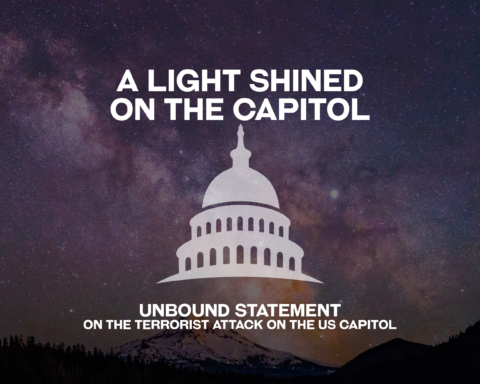

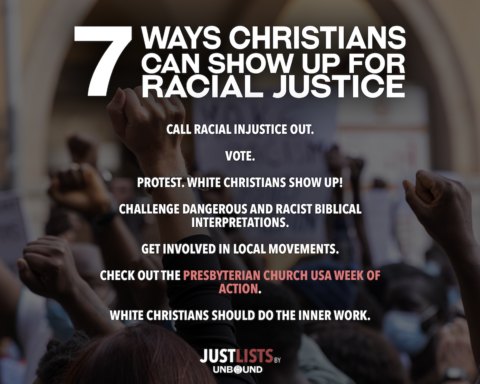
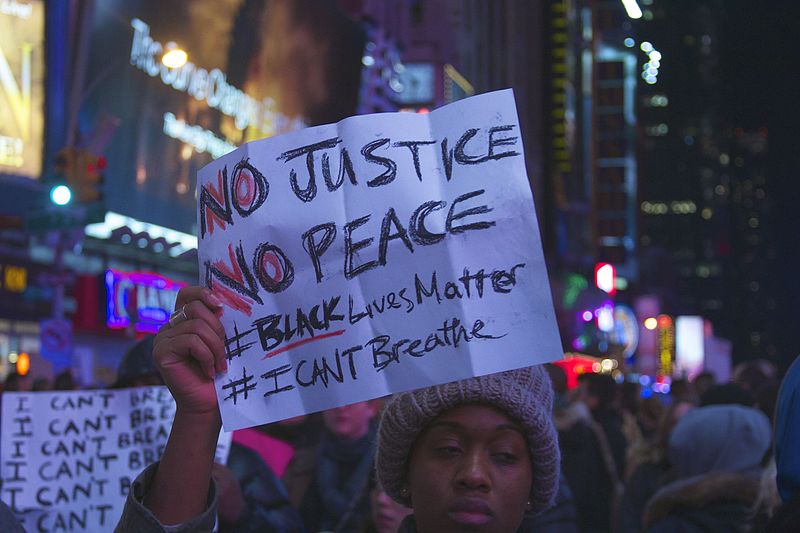

Unbound Social